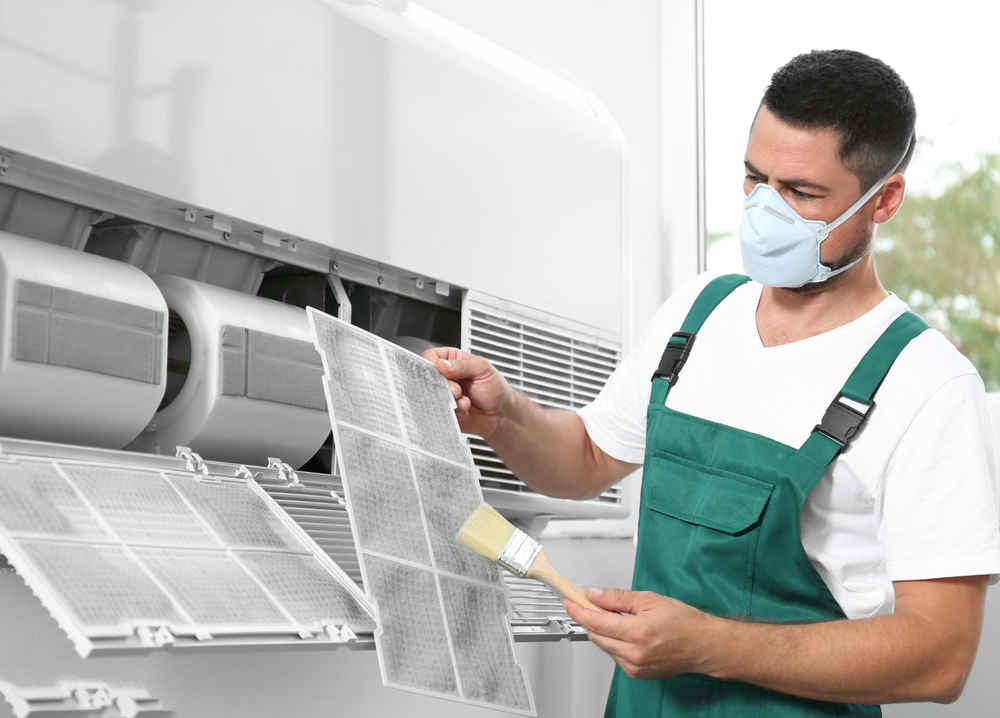How Often Should I Clean My HVAC System?

Maintaining a clean and efficient HVAC system is crucial for comfort and optimal indoor air quality. Regular cleaning not only extends the lifespan of your HVAC equipment but also helps minimize energy consumption and enhance its overall performance. However, homeowners often wonder how frequently they should clean their HVAC system to ensure it operates at peak efficiency.
Understanding the Importance of HVAC Cleaning
Before we discuss the appropriate cleaning intervals, it is essential to understand why keeping your HVAC system clean is crucial. Over time, dust, dirt, pollen, and other contaminants accumulate within the HVAC system, obstructing airflow and reducing its efficiency. This buildup can lead to various issues, including decreased heating or cooling performance, reduced indoor air quality, and higher energy bills.
Factors Affecting HVAC Cleaning Frequency
The frequency at which you should clean your HVAC system can vary depending on several factors specific to your home and usage patterns. Here are some key factors to consider:
1. Location and Surroundings
If your property is located in an area with high dust, pollen, or pollution levels, your HVAC system may require more frequent cleaning. Similarly, if your home is situated in a construction zone or near roadways with heavy traffic, the system may accumulate debris at a faster rate.
2. Pets and Allergies
Homes with pets tend to have increased pet dander and hair levels, which can quickly clog air filters and impede airflow. Additionally, individuals with allergies or respiratory conditions may need to clean their HVAC system more frequently to maintain optimal indoor air quality.
3. Occupancy and Usage
The number of people residing in your home and how often your HVAC system operates can impact the cleaning frequency. For instance, a larger household with a higher usage pattern may require more frequent cleanings to prevent excessive buildup of dirt and debris.
Recommended HVAC Cleaning Frequencies
While it’s essential to consider individual factors, here are some general guidelines to help you determine how often you should clean your HVAC system:
1. Air Filters
The air filters in your HVAC system play a vital role in trapping debris and preventing it from circulating through your home. Regularly inspecting and changing these filters is crucial. Inspecting them every month and replacing them every three months is recommended as a rule of thumb. However, if your home has high dust or pet hair levels, you may need to replace them more frequently.
2. Ductwork Cleaning
Ductwork cleaning should be performed every three to five years, depending on various factors. If you notice excessive debris or mold growth or experience unexplained health issues, scheduling a duct cleaning sooner may be wise.
3. Coil Cleaning
The coils in your HVAC system are responsible for heat exchange. Over time, they can accumulate dirt, hindering efficiency. It is advisable to have your coils professionally cleaned once a year to maintain optimal performance.
4. Regular Maintenance
In addition to specific cleaning tasks, scheduling regular HVAC maintenance with a professional technician is highly recommended. Professional inspections and tune-ups can identify potential issues and ensure your system operates at peak efficiency. Aim to perform this maintenance at least once a year, preferably before the cooling and heating seasons.
Contact Us Today
Maintaining a clean HVAC system is crucial for optimal performance and indoor air quality. If you reside in Scottsdale, AZ, or anywhere else in the Valley of the Sun and require professional HVAC cleaning services, look no further than PlumbSmart. With our experienced technicians and commitment to service excellence, we provide comprehensive HVAC cleaning and maintenance solutions tailored to your specific needs. Visit our website or call (480) 654-8865 to schedule an appointment today.
